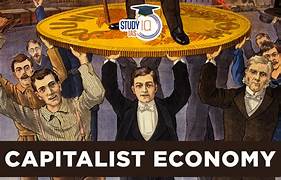The Study of Income and Taxation: How Low-Income Earners Fare in a Capitalist Society
Introduction
Income inequality and taxation are central themes in any capitalist society. While free markets create opportunities for wealth generation, they also contribute to economic disparities, with low-income earners facing unique financial burdens. Tax policies, government assistance programs, and economic structures influence how these individuals navigate financial stability. This article examines how low-income earners fare in a capitalist system, focusing on taxation, cost of living, and social mobility.
1. Understanding Income Disparities in Capitalist Economies
Capitalism thrives on competition, private enterprise, and profit generation. However, it often results in income inequality, with wealth concentrated among a small percentage of the population.
Key Factors Contributing to Income Disparities:
- Wage Gaps: High-paying jobs are often linked to education and specialized skills, leaving low-skilled workers with limited earning potential.
- Job Market Volatility: Low-income workers are more susceptible to layoffs and job instability.
- Cost of Living Variations: Urban areas have higher living costs, making it harder for low-income earners to accumulate wealth.
- Wealth Accumulation Barriers: Limited access to investment opportunities keeps low-income individuals from building assets.
2. Taxation and Its Impact on Low-Income Earners
Tax systems play a crucial role in income distribution. While progressive tax policies aim to ease the burden on low-income individuals, indirect taxes and social contributions often offset these benefits.
Types of Taxes Affecting Low-Income Earners:
- Income Tax: Many capitalist societies use a progressive tax system, but deductions and credits may not fully compensate for the burden.
- Payroll Taxes: Social Security, Medicare, and unemployment contributions reduce take-home pay.
- Sales Tax: Consumption taxes disproportionately affect low-income earners since they spend a larger portion of their income on essentials.
- Property Taxes: Rising housing costs and rental inflation create financial strain for those unable to afford homeownership.
Tax Relief Measures:
- Earned Income Tax Credit (EITC): Helps supplement wages for low-income workers.
- Child Tax Credit: Assists families with financial burdens.
- Tax Exemptions for Essential Goods: Some governments reduce taxes on necessities like food and medicine.
3. Challenges Faced by Low-Income Earners in a Capitalist System
While capitalism fosters economic growth, it also presents challenges for low-income individuals striving for financial security.
a. Difficulty in Wealth Accumulation
- Limited savings make it harder to invest in education, property, or businesses.
- Rising healthcare and housing costs create financial strain.
b. Limited Access to Credit and Financial Services
- Higher interest rates and lack of collateral restrict low-income earners from securing loans.
- Predatory lending practices exploit financial vulnerability.
c. Employment and Wage Stagnation
- Minimum wages often fail to keep up with inflation.
- Job automation and outsourcing reduce low-skilled job availability.
4. Government Policies and Social Safety Nets
To counteract the economic disadvantages faced by low-income earners, governments implement various assistance programs.
Key Policies Supporting Low-Income Earners:
- Minimum Wage Laws: Set income floors to prevent exploitation.
- Affordable Healthcare Programs: Reduce medical expenses.
- Public Housing and Rent Assistance: Helps offset high living costs.
- Job Training and Education Grants: Provide opportunities for career advancement.
5. Balancing Capitalism and Social Equity
A capitalist system can be adjusted to support economic mobility while maintaining free-market principles.
Potential Solutions:
- Strengthening progressive taxation to reduce income disparity.
- Expanding financial education to empower low-income earners.
- Increasing public investment in infrastructure and job creation.
- Encouraging corporate social responsibility to bridge economic gaps.
Conclusion
Low-income earners in a capitalist society face significant challenges in taxation, income stability, and wealth accumulation. While tax relief measures and social programs help mitigate financial struggles, economic policies must evolve to promote fairness and long-term prosperity. A balanced approach that fosters both entrepreneurship and social equity is crucial to ensuring that capitalism benefits all members of society, not just the wealthiest.

